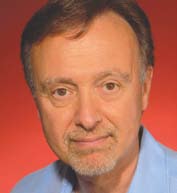I’m also struck by the extremely reductive and sweeping generalisations being made about theory. Criticism of the same would be more worthwhile if it didn’t come from such an anti-intellectual space.

“a much larger story of corruption, bribery, organized crime and the political machinery of Mayor Daley.”
John D’Emilio, professor of gay history and women’s studies at the University of Illinois at Chicago (UIC) , presented his latest research on Chicago’s gay history February 9 at the university’s Institute for the Humanities, where he currently holds a yearlong fellowship. Speaking to a packed room, D’Emilio gave a speech provocatively titled “Rethinking Queer History. Or, Richard Nixon, Gay Liberationist.”

“What’s queer about sex offenders? Are sex offenders the new queers?” That was the provocative title of an all-day conference on sex-offender laws, hosted by the University of Chicago and the Center on Halsted and held at the Center May 27. Speakers included literary theorists, activists, artists, legal scholars and political scientists.
For the third year in a row, the University of Illinois at Chicago’s (UIC’s) Gender and Sexuality Center (GSC) hosted a Lavender Graduation. When it first started in 2007, the event was designed to give LGBTQA students a way to celebrate their graduation and academic achievements while recognizing that their sexual and gender identities were integral to their educational experiences and deserving of celebration and recognition. Since then, Lavender Graduation has expanded from 10 students to 30; this year’s keynote speaker was trans actor/entertainer Alexandra Billings.
The Chicago History Museum’s (CHM’s) ongoing series, Out at CHM, featured local gay historian John D’Emilio on April 15. D’Emilio, a professor of history and gender and women’s studies at the University of Illinois at Chicago, presented a piece entitled “Richard Nixon, Gay Liberationist?” Speaking to a packed auditorium, D’Emilio discussed the implications of his research for scholars of queer history. He argued that while it was tempting to read the virtual end of the harassment of gay bars in the 1970s as a sign of the success of queer resistance to the Daley machine, the truth might be more prosaic and linked to wider national political changes of the time.
The University of Illinois at Chicago hosted its third annual Lavender Forum April 15, an event co-sponsored by the Gender and Sexuality Center and the Chancellor’s Committee on the Status of Lesbian, Gay, Bisexual, and Transgender Issues. The forum began in 2008 as a daylong series of presentations by faculty and students. This year, it focused on student work that included the winners of a paper competition and the recipients of the Gender and Sexuality Center’s Kellogg Rainbow Merit Scholarship.